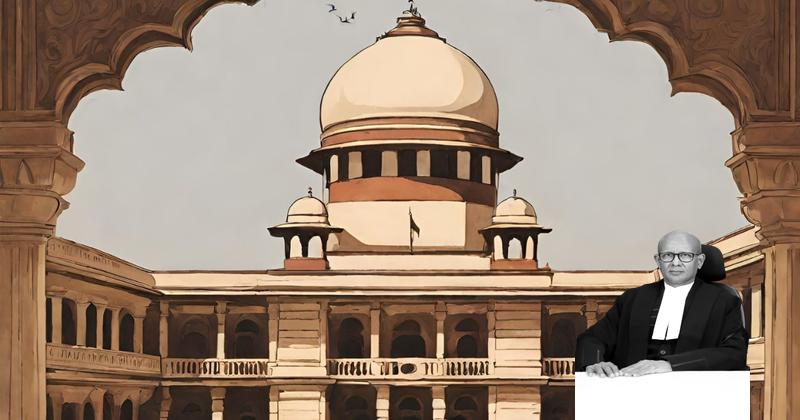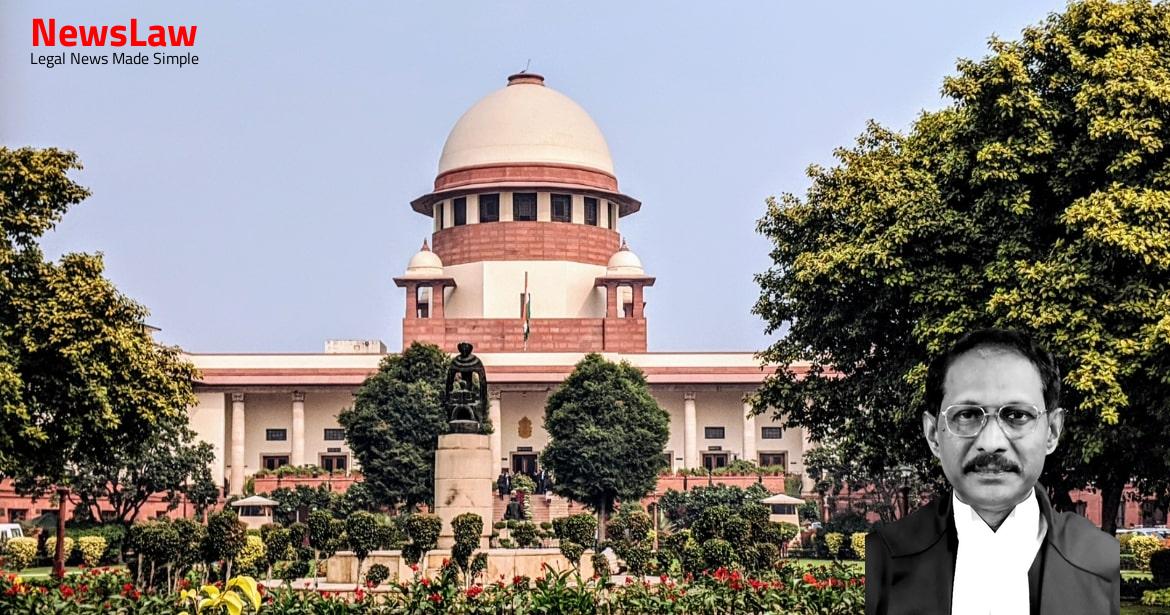Acting thereupon, by letter dated 11.02.1987, the Government of Punjab approved allotment of a residential plot 1 of 500 square yards in Development Scheme Giani Zail Singh Nagar of Improvement Trust, Ropar, to Shashi Bala out of the Government’s discretionary quota under Rule 4 of the Punjab Town Improvement (Utilization of Land and Allotment of Plots) Rules, 1983 Upon exchange of correspondence between Shashi Bala and the Trust, Memo dated 04.07.1988 was issued by the Trust calling upon her to submit her duly attested affidavit, as per the enclosed proforma. The authorities were directed to allot a plot to her at the price which was fixed at the time when the Government had directed the Trust to allot her a plot in the Development Scheme of Giani Zail Singh Nagar, Ropar.
Also Read: https://newslaw.in/case-type/civil/courts-analysis-on-bona-fide-requirement-in-eviction-petitions/
However, by judgment dated 23.01.2008, a Division Bench of the Punjab & Haryana High Court dismissed the appeal, holding that the Government had already approved allotment of a plot to Shashi Bala and there was a finding of fact that she had complied with the formalities and submitted documents as required. State of Punjab and another ’
[AIR 2004 P&H 67] following the decision of another Full Bench of the High Court in the context of a similar regime of reservation of plots and allotment through discretionary quota in the State of Haryana.
The system prevailing in the State of Punjab under Rule 4 of the Rules of 1983, apropos reservation of plots and the Government’s discretionary quota, was practically identical to 4 that obtaining in the State of Haryana. This notification reads to the effect that the following categories of persons would be eligible for allotment of plots under the 5 per cent discretionary quota: “(i) Those persons or their dependents who have suffered at the hands of terrorists or rioters; (ii) those persons who have distinguished themselves in different fields eg.
Also Read: https://newslaw.in/case-type/criminal/analysis-of-evidence-and-courts-ruling/
Noting that the earlier Full Bench decision pertaining to Haryana had upheld the power of the Government to make reservations for various defined categories and groups of persons, it was held that the discretion conferred upon the Chief Minister had to be in consonance with various Constitutional provisions, as no absolute discretion would vest in the Government for making either such reservation or allotment.
As validity of the reservations akin to those provided under Rule 4 (ii), (iii), (iv), (v) and (vi) of 6 the Rules of 1983, in favour of freedom fighters, political sufferers, defence personnel, border security force personnel, persons appointed to public service by the State Government and persons belonging to the Scheduled Castes and Backward classes, had already been upheld in Anil Sabharwal ( supra ) by the earlier Full Bench in the context of the State of Haryana, it was observed that it would not be necessary to examine the validity of the said reservations 11.
Exceptions were also made in the case of allottees who were members of the Armed Forces/Paramilitary Forces/ Police Forces who had fought against terrorism and civilians 7 affected by terrorist activities, subject to a review by a committee to be constituted by the Government. Be it noted that the Full Bench specifically dealt with the reservation of 5% of the plots in favour of select categories or classes of persons under the third proviso to Rule 4 of the Rules of 1983 and it was observed that such discretion was wholly unguided and unlimited and the only criteria which had been placed on record was the policy contained in the Notification dated 31.01.1989.
However, the power granted to the Government under Clause (iv) was held to be wholly arbitrary and capable of abuse and that was the reason why the Full Bench held the entire discretionary quota of 5%, as contained under the third proviso to Rule 4, was vague and arbitrary and was, therefore, violative of Article 14 of the Constitution of India. In the light of the above Full Bench judgment, the inchoate allotment of a plot in favour of Shashi Bala was rendered redundant and ineffective as only those persons, who were actually allotted specific plots and had constructed houses/buildings thereon as per sanctioned plans prior to 06.06.1996, stood protected by the Full Bench and even those allottees who were actually allotted plots but had not 9 constructed houses/buildings thereon by the effective date were to be refunded the monies paid by them within a time frame.
Thereupon, the Full Bench judgment dated 25.07.2003 and its order dated 09.07.2004 were subjected to challenge by the PUDA before this Court in SLP(C)No. Patwalia, learned senior counsel, would contend that the allotment of a plot in favour of Shashi Bala stood complete upon approval by the Government of Punjab, his contention cannot be countenanced as the letter dated 11.02.1987 of the Deputy Secretary, Department of Local Government, Government of Punjab, clearly stated that the Government had merely approved the allotment of a residential plot admeasuring 500 square yards and directed the Trust to allot an identified plot to her under Rule 4 of the Rules of 1983.
Also Read: https://newslaw.in/case-type/civil/validity-of-tamil-nadu-land-acquisition-acts/
As stated hereinbefore, the decision of the Full Bench, invalidating the actual allotments made under the discretionary quota and directing the Government of Punjab to 11 draw up a policy in relation to reservation for various categories, including Social Service, was not brought to the notice of either the learned Judge or the Division Bench of the High Court. Parties shall bear their own costs.
Case Title: IMPROVEMENT TRUST ROPAR THROUGH CHAIRMAN Vs. SHASHI BALA (2023 INSC 374)
Case Number: C.A. No.-005564-005564 / 2009



